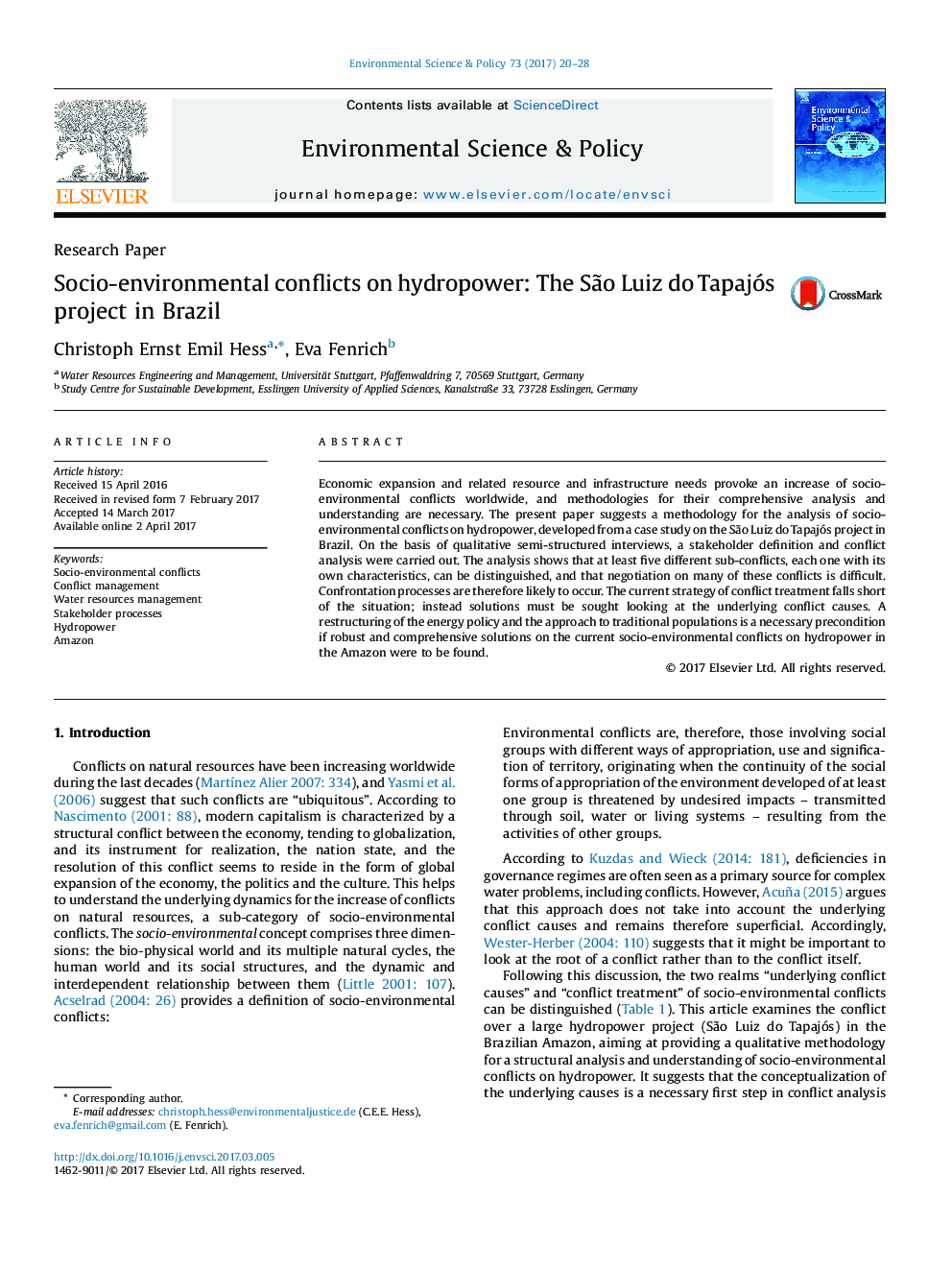| Article ID | Journal | Published Year | Pages | File Type |
|---|---|---|---|---|
| 5115846 | Environmental Science & Policy | 2017 | 9 Pages |
â¢A qualitative method for the analysis of socio-environmental conflicts is proposed.â¢A stakeholder definition is carried out and discussed.â¢Different conflicts caused by the same project are identified and analysed.â¢Conflict management schemes must transcend single project and tackle energy policy.
Economic expansion and related resource and infrastructure needs provoke an increase of socio-environmental conflicts worldwide, and methodologies for their comprehensive analysis and understanding are necessary. The present paper suggests a methodology for the analysis of socio-environmental conflicts on hydropower, developed from a case study on the São Luiz do Tapajós project in Brazil. On the basis of qualitative semi-structured interviews, a stakeholder definition and conflict analysis were carried out. The analysis shows that at least five different sub-conflicts, each one with its own characteristics, can be distinguished, and that negotiation on many of these conflicts is difficult. Confrontation processes are therefore likely to occur. The current strategy of conflict treatment falls short of the situation; instead solutions must be sought looking at the underlying conflict causes. A restructuring of the energy policy and the approach to traditional populations is a necessary precondition if robust and comprehensive solutions on the current socio-environmental conflicts on hydropower in the Amazon were to be found.
Graphical abstractDownload high-res image (201KB)Download full-size image
